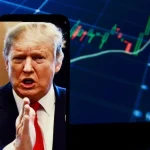
Marjorie Taylor Greene and the Hypocrisy of Political Profit
Posted in :
Marjorie Taylor Greene’s Political Profit Hypocrisy
Controversial actions and financial fortune of Marjorie Taylor Greene, exploring the perceived hypocrisy between her political stance and her personal financial gains. Through analyzing her stock trading activities and public persona, we reveal how her actions reflect broader issues in the political landscape.
In a world where political integrity seems increasingly elusive, few figures evoke as much controversy as Marjorie Taylor Greene. Known for her fiery rhetoric and offbeat beliefs, Greene’s recent financial activities have raised eyebrows—and questions about her integrity. How is it that someone who publicly disparages the concept of tariffs can simultaneously profit from them? Let’s dive into the tangled web of politics and personal gain.
The Illusion of Ignorance: Greene’s Public Persona
Marjorie Taylor Greene is a name that stirs up strong feelings. She is often seen as a political outsider, a rebel who makes headlines with her controversial statements. But what lies beneath this public persona? Is she really as uninformed as she appears, or is there a more calculated strategy at play?
Overview of Greene’s Controversial Statements
Greene has made headlines for her bold and often outrageous comments. For instance, she has referred to those who panic over tariffs as “losers and failures.” This kind of rhetoric resonates with her base, but it also raises eyebrows. How can someone in her position dismiss serious economic concerns so flippantly?
Her statements often seem designed to provoke. They serve as a rallying cry for her supporters, who appreciate her willingness to challenge the status quo. Yet, this approach can also backfire. Critics argue that such comments reflect a lack of seriousness and understanding of complex issues.
Analysis of Her ‘Dumb’ Image and Political Strategies
Greene’s public image is often that of a “dumb” politician. But is this image a facade? Many believe it is a deliberate strategy. By playing the role of the uninformed outsider, she connects with a segment of the population that feels alienated by traditional politics.
- She often uses simple language and relatable anecdotes.
- Her statements are designed to resonate with everyday Americans.
- She feeds “red meat” to her base, keeping them engaged and loyal.
As one observer noted,
“She plays dumb and feeds red meat to her base…”
This tactic allows her to maintain a strong following, even as her credibility is questioned. It’s a classic populist strategy: appeal to the emotions of the masses while downplaying the complexities of governance.
The Tactic of Appealing to Populism While Profiting
Greene’s actions suggest a deeper understanding of political and economic dynamics. While she portrays herself as a champion of the people, her financial dealings tell a different story. For example, her recent stock purchases occurred during market downturns, raising eyebrows about her timing and knowledge.
Her investment in Restoration Hardware is particularly telling. After she bought shares, the stock rose significantly following an announcement about tariff pauses. This raises questions: Did she have insider knowledge? Is her public persona just a cover for savvy financial maneuvering?
Critics argue that Greene’s financial success—her net worth reportedly skyrocketing from $700,000 to $22 million since her election—stems from exploiting her political position. This creates a troubling conflict of interest. How can voters trust a representative who seems to profit from the very issues she publicly downplays?
Public Perception and the Disconnect
Greene’s public persona is a mix of bravado and contradiction. She often presents herself as a devout Christian, yet her financial dealings raise ethical questions. This disconnect between her professed values and her actions is troubling. It reflects a broader issue within American evangelicalism, where some leaders seem to prioritize wealth over humility and generosity.
As Greene continues to gain popularity within the MAGA base, it highlights a cultural shift. The acceptance of illogical beliefs and the rejection of critical thinking pose risks for the democratic process. Greene embodies these contradictions, making her a focal point for discussions about the future of American politics.
In summary, Marjorie Taylor Greene’s public persona is a carefully crafted illusion. While she may appear uninformed, her actions suggest a more complex strategy. The interplay between her controversial statements, populist appeal, and financial dealings raises important questions about integrity and accountability in politics.
Stock Investments and the Ethics of Congress
Marjorie Taylor Greene has become a focal point in discussions about ethics in Congress, particularly regarding her stock investments. Her financial maneuvers raise eyebrows, especially when viewed against the backdrop of her comments on tariffs. Greene has been vocal, labeling those who panic over tariffs as “losers and failures.” Yet, her actions tell a different story.
Greene’s Stock Purchases Amid Tariff Discussions
During a time when the market was in decline, Greene made stock purchases amounting to hundreds of thousands of dollars. This timing is crucial. It suggests that she may have had insights into market movements that the average investor did not. For instance, her investment in Restoration Hardware coincided with a downturn linked to tariff discussions. Following an announcement about tariff pauses, the stock surged by 27%. How did Greene know when to buy?
This situation raises serious questions about insider trading. Insider trading laws are designed to prevent individuals from profiting off of non-public information. But how do these laws apply to politicians like Greene? Are they held to the same standards as regular citizens? The implications are significant. If politicians can trade stocks based on privileged information, it creates a dangerous precedent.
Understanding Insider Trading Regulations
Insider trading is illegal. It involves buying or selling stocks based on confidential information. However, the lines can blur when it comes to politicians. They often have access to information that can influence market conditions. This creates a potential conflict of interest. Greene’s net worth reportedly skyrocketed from $700,000 to $22 million during her time in Congress. This raises the question: did her financial success come from her legislative role?
- Greene’s stock purchases occurred during significant tariff discussions.
- Her investment in Restoration Hardware saw a notable increase after tariff announcements.
- Insider trading laws may not be effectively enforced for politicians.
Potential Conflicts of Interest in Congressional Stock Ownership
There is a massive conflict of interest with people in government trading stocks. Greene’s actions exemplify this issue. When politicians profit from their legislative roles, it undermines public trust. Critics argue that such practices lead to corruption within the political system. Greene’s timing in stock trading raises eyebrows, especially when paired with her public persona.
Her comments and actions often reflect a troubling mixture of politics and personal gain. Greene’s support for Trump, despite his administration’s mishandling of the COVID-19 pandemic, adds another layer to her character. She presents herself as a devout Christian, yet her financial dealings seem to contradict the values she espouses.
Moreover, Greene’s online presence further complicates her image. She often shares playful depictions of herself, accessorized with a Bible, while engaging in questionable financial activities. This juxtaposition highlights a disconnect between her professed values and her actions. It raises the question: can one truly embody Christian values while engaging in such financial practices?
In conclusion, Greene’s financial portfolio and stock investments amid tariff discussions reveal a troubling trend. Politicians like her may exploit their positions for personal gain. The implications of such actions extend beyond individual ethics; they challenge the integrity of the political system as a whole. As the debate continues, the need for transparency and accountability in Congressional stock ownership becomes increasingly urgent.
MAGA Christianity: A Study in Hypocrisy
Marjorie Taylor Greene is a name that stirs up strong opinions. She is often seen as a controversial figure in American politics. Greene claims to uphold Christian values. However, her actions tell a different story. This raises important questions about the intersection of faith and politics.
Greene’s Professed Christian Values
Greene often speaks about her Christian beliefs. She presents herself as a devout follower of Christ. But what does that really mean? Is it just a label, or does it reflect her true values? Greene’s public persona suggests a commitment to Christian teachings. Yet, her financial dealings paint a contrasting picture.
- She has been involved in stock trading during market downturns.
- Her investments seem to benefit from insider knowledge.
- Critics argue that this behavior contradicts the humility and generosity that Christianity promotes.
For instance, Greene’s investment in Restoration Hardware came at a time when tariffs were causing market instability. After a pause on tariffs, the stock value surged by 27%. This raises eyebrows. Did she have prior knowledge of these market movements? Such questions linger in the air.
Examining the Disparity Between Rhetoric and Actions
There is a clear disparity between Greene’s words and her actions. She often criticizes others for their financial missteps, labeling them as “losers and failures.” Yet, her own financial maneuvers suggest a different narrative. Greene’s net worth reportedly skyrocketed from $700,000 to $22 million since her election. How did she achieve such wealth? Many speculate that it stems from exploiting her political position.
“It is breathtaking hypocrisy…”
This quote encapsulates the essence of the criticism directed at Greene. Her actions seem to contradict the very values she claims to uphold. This hypocrisy is not just a personal failing; it reflects a broader issue within political Christianity.
Impact of Political Christianity on Societal Views
The intertwining of faith and politics has significant implications for society. Greene’s behavior exemplifies a troubling trend. Many evangelical Christians seem to prioritize political allegiance over moral teachings. This shift raises concerns about the integrity of Christian values in the public sphere.
- Are political affiliations influencing Christian morals?
- Is the evangelical community becoming more aligned with right-wing politics?
- What does this mean for the future of American Christianity?
Greene’s popularity within the MAGA base highlights this cultural shift. It suggests a growing acceptance of illogical beliefs and a rejection of critical thinking. This trend poses risks for the democratic process. When individuals like Greene gain traction, it raises alarms about the future of political discourse in America.
In conclusion, the analysis of Greene’s actions and beliefs reveals a complex landscape. Her identity as a self-proclaimed Christian stands in stark contrast to her financial dealings. This hypocrisy raises questions about the broader implications for America’s religious and political landscapes. As society grapples with these issues, the need for critical examination of political figures becomes increasingly urgent.
The Bigger Picture: Political Opportunism in Modern Governance
Marjorie Taylor Greene is more than just a controversial figure in American politics. She embodies a larger trend within the GOP, reflecting a shift towards political opportunism. This trend raises significant questions about the integrity of elected officials and the state of democracy itself.
Greene and the GOP: A Reflection of a Larger Trend
Greene’s actions and comments often reveal a troubling pattern. For instance, she has been known to label those who panic over tariffs as “losers and failures.” Yet, at the same time, she made substantial stock purchases during market declines. This juxtaposition is not merely coincidental. It suggests a calculated approach to leveraging her political position for personal gain.
Her investment in Restoration Hardware during a downturn linked to tariffs is particularly telling. After a pause on tariffs was announced, the stock surged by 27%. This raises eyebrows. Did Greene have prior knowledge of these market movements? Such questions are not just about her; they reflect a broader issue within the GOP. Greene is not an outlier but rather a symptom of a political culture that prioritizes personal gain over public service.
Comparisons with Other Politicians
Greene’s behavior is reminiscent of other politicians who have faced scrutiny for similar actions. For example, former Congressman Chris Collins was convicted for insider trading, highlighting the risks of mixing politics with personal finance. Greene’s rapid wealth accumulation—from $700,000 to $22 million since her election—echoes the concerns raised about Collins and others. This trend is alarming. It suggests a systemic issue where politicians exploit their positions for financial gain.
Moreover, Greene’s public persona often mixes politics with religious rhetoric. She presents herself as a devout Christian while engaging in questionable financial activities. This hypocrisy is not unique to her; it reflects a broader trend among some politicians who intertwine their faith with opportunistic behavior. The question arises: how can one reconcile the teachings of humility and generosity with such actions?
The Erosion of Trust in Political Institutions
The implications of Greene’s actions extend beyond her individual case. They contribute to the erosion of trust in political institutions. Approval ratings for Congress are at an all-time low, and public trust in government is dwindling. Greene’s popularity within the MAGA movement exemplifies a cultural shift towards accepting illogical beliefs and a rejection of critical thinking.
As the speaker aptly noted, “The American people are collateral damage to these unenlightened stupid people…” This statement encapsulates the frustration many feel towards politicians who prioritize personal gain over the welfare of their constituents. Greene’s rise within the GOP signals a troubling acceptance of such behavior, which poses risks for the democratic process.
In conclusion, Marjorie Taylor Greene is a reflection of a growing trend in modern governance. Her actions highlight the intertwining of personal ambition and political power, raising critical questions about the integrity of elected officials. As the GOP continues to embrace figures like Greene, the erosion of trust in political institutions becomes more pronounced. The need for public awareness and critical examination of such political dynamics is urgent. The future of democracy may depend on it.
TL;DR: Marjorie Taylor Greene’s financial dealings reveal a troubling hypocrisy rooted in political opportunism and insider trading activities, highlighting the broader issues of ethics in politics.
ChristianValues, MAGA, CongressionalWealth, PoliticalHypocrisy, MarjorieTaylorGreene, InsiderTrading, RestorationHardwareStocks, PoliticalCorruption
#ChristianValues, #MAGA, #CongressionalWealth, #PoliticalHypocrisy, #RestorationHardwareStocks, #MarjorieTaylorGreene, #PoliticalCorruption, #InsiderTrading,#MarjorieTaylorGreene, #InsiderTrading, #PoliticalHypocrisy, #CongressionalEthics, #GOPCorruption, #Populism, #MAGAChristianity, #Tariffs, #RHStock, #PoliticalAccountability

